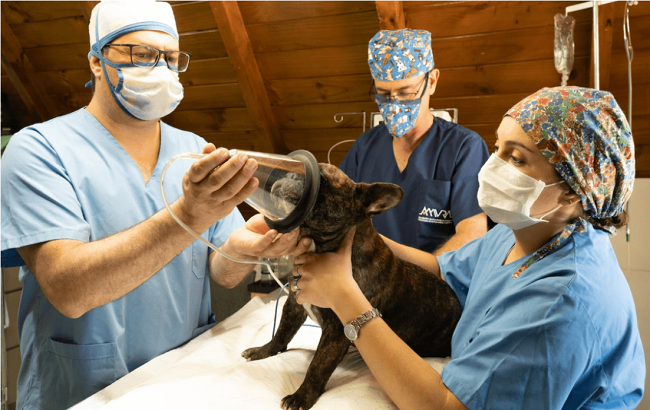Becoming a vet tech is one of the most fulfilling careers for those who love animals and want to make a real difference in their lives. As a vet tech, you play an essential role in a veterinary clinic or hospital, assisting veterinarians in diagnosing, treating, and providing ongoing care for animals. The profession requires dedication, compassion, and a wide range of technical skills. In this article, we will explore the seven essential skills every vet tech needs for success, as well as the challenges that come with the job and tips on overcoming them.
Highlights
Toggle1. Strong Communication Skills
Clear communication is critical for any vet tech, whether interacting with pet owners, colleagues, or veterinarians. The ability to explain medical procedures and convey important information can be the difference between a smooth treatment process and misunderstandings.
Why Communication is Key for Vet Techs
- Explaining Procedures to Pet Owners: One of the main responsibilities of a vet tech is explaining complex medical information in a way that is easy to understand. You need to help pet owners feel comfortable and informed about their pets’ health and treatment options.
- Collaborating with Team Members: Vet techs work closely with veterinarians, animal care staff, and other medical professionals. Good communication ensures that everyone is on the same page, which is vital when providing medical care for animals.
Tips for Improving Communication
- Listen Actively: Always listen carefully to pet owners’ concerns and questions. Show empathy and offer clear, helpful responses.
- Use Simple Language: Avoid medical jargon when speaking to pet owners. Use layman’s terms to ensure they fully understand their pet’s condition.
- Stay Calm in Stressful Situations: Some pet owners may be anxious or upset, especially when their pets are ill. It’s essential to remain calm, reassuring, and empathetic to ease their fears.
2. Animal Handling and Care
A vet tech needs to be comfortable working with animals of various sizes and temperaments. Handling animals, especially in high-stress situations, can be physically demanding and requires patience and care.
Techniques for Handling Different Animals
- Small Animals (Dogs, Cats): While these animals may be more familiar to most, they can still be nervous or aggressive during medical procedures. It’s important to approach them calmly and use gentle restraint to avoid causing unnecessary stress.
- Large Animals (Horses, Cows): These animals require more specialized knowledge and equipment. You may need to use appropriate tools like halters, ropes, or sedation to ensure safety during examinations or treatments.
- Exotic Animals: Animals like reptiles, birds, and small mammals have their own unique care requirements. Being able to handle them safely and comfortably is essential for a vet tech.
Tips for Mastering Animal Care
- Stay Patient: Animals may react unpredictably. Take your time and approach them in a calm, slow manner to avoid startling them.
- Get Comfortable with Restraint: Learn how to safely restrain animals, especially when preparing them for medical procedures like blood draws or injections.
- Understand Animal Behavior: Being able to read and respond to an animal’s behavior can help reduce stress for both you and the animal. Understanding body language can help you know when to approach and when to give the animal space.
3. Diagnostic Skills
A vet tech assists in performing diagnostic tests that help identify health issues in animals. These tests range from blood work to X-rays, and the more skilled you are in these tasks, the more valuable you become to your team.
Essential Diagnostic Tools and Procedures
- Blood Work: Drawing blood for tests is a common responsibility for vet techs. You must be skilled in locating veins and using syringes, as well as understanding how to properly store and transport the samples.
- X-Rays and Imaging: Many vet techs help veterinarians with diagnostic imaging, including X-rays, ultrasounds, and MRIs. Learning how to take clear, accurate images is vital for diagnosing health conditions.
- Urinalysis: Collecting and analyzing urine samples can help detect a variety of issues, including kidney disease or urinary tract infections.
Why Diagnostic Skills Matter
- Accurate Diagnosis: Proper diagnostic skills help identify the root cause of an animal’s symptoms, ensuring they receive the right treatment.
- Efficient Treatment: Timely diagnostics lead to faster treatment, which can improve the prognosis for many conditions.
How to Improve Your Diagnostic Skills
- Get Familiar with Laboratory Equipment: Practice using lab tools such as microscopes, centrifuges, and other diagnostic equipment.
- Take Diagnostic Courses: Many programs offer training in diagnostic testing for animals, which can help you become proficient in laboratory procedures and reading results.
4. Technical Knowledge and Hands-On Skills
As a vet tech, you need to understand the technical side of veterinary medicine. This includes assisting with surgeries, administering medications, and using various medical equipment. A vet tech is often the first person to monitor and evaluate an animal’s condition, which makes hands-on skills essential.
Core Technical Skills Every Vet Tech Should Have
- Surgical Assistance: A vet tech may help during surgeries by preparing instruments, maintaining sterile environments, and assisting with anesthesia. You’ll also monitor vital signs during procedures.
- Administering Medications: You will be responsible for giving animals the prescribed medications, either orally, through injections, or intravenously. Knowing the proper dosages and methods is essential.
- Monitoring Vital Signs: You need to check and record the animal’s temperature, pulse, respiratory rate, and other important signs of health. Monitoring these vital signs is crucial before, during, and after procedures.
How to Master Technical Knowledge
- Study Veterinary Practices: Understand the full range of procedures and techniques used in veterinary clinics. This knowledge will allow you to assist in a variety of settings, from routine checkups to emergencies.
- Get Comfortable with Medical Equipment: Become proficient with anesthesia machines, surgical instruments, and diagnostic tools.
- Take Hands-On Training: Participate in internships or shadowing opportunities to gain practical, hands-on experience in the field.
5. Compassion and Empathy
A vet tech’s role is not just about technical skills—it’s also about caring for animals and providing emotional support to pet owners. Compassion and empathy are essential in ensuring animals receive the best care and in helping pet owners navigate difficult situations.
Why Compassion is Crucial in Veterinary Care
- Emotional Support for Pet Owners: Many pet owners are anxious or scared when their pets are sick. As a vet tech, you provide reassurance and offer guidance on treatment options.
- Comforting Animals: During procedures or in recovery, animals need comfort and calm. Your role includes offering gentle care and monitoring their well-being.
Tips for Showing Compassion in Your Work
- Be Patient and Understanding: Whether working with animals or their owners, always show understanding and empathy.
- Stay Positive: In difficult situations, maintaining a positive attitude can help alleviate stress and make pet owners feel more confident in their pet’s care.
- Offer Support: Help pet owners by explaining treatments clearly and answering their questions with patience.
6. Time Management and Organization
Working as a vet tech can be incredibly fast-paced, especially in busy clinics or hospitals. You may be tasked with handling multiple animals and procedures at once, which requires excellent time management and organizational skills.
Why Time Management is Essential for Vet Techs
- Efficient Treatment: Proper time management ensures that each animal receives timely care without compromising quality.
- Handling Multiple Tasks: Vet techs often juggle several responsibilities at once, including assisting in surgeries, conducting tests, and interacting with clients. Staying organized helps manage these duties effectively.
Tips for Managing Your Time Effectively
- Prioritize Your Tasks: Identify which procedures need immediate attention and which can wait. Focus on high-priority tasks first.
- Stay Organized: Keep your workspace clean and organized, and ensure that patient records are up-to-date.
- Use Technology: Many clinics use scheduling software. Familiarize yourself with these tools to streamline appointment bookings and procedures.
7. Emergency Preparedness and Problem Solving
In the fast-paced world of veterinary care, emergencies happen. Whether it’s a sudden illness or an injury, a vet tech must be prepared to respond quickly and efficiently to ensure the best outcome for the animal.
Key Skills for Handling Emergency Situations
- CPR and Resuscitation: Learning CPR for animals can be life-saving in emergencies. A vet tech needs to be ready to act if an animal goes into cardiac arrest.
- Stabilizing Animals: You may need to help stabilize animals before the veterinarian arrives, ensuring their condition doesn’t worsen.
- Problem-Solving: In emergency situations, you may need to make quick decisions and use available resources to stabilize an animal.
How to Be Prepared for Emergencies
- Take Emergency Response Training: Many programs offer emergency response and CPR courses for animals.
- Know Emergency Protocols: Learn the standard operating procedures for emergencies at your clinic, so you can act quickly when needed.
- Practice Problem-Solving: Regularly simulate emergency scenarios to stay sharp and improve your decision-making under pressure.
Overcoming Common Challenges as a Vet Tech
While the job of a vet tech is rewarding, it can also come with its challenges. From emotionally difficult situations to physical demands, it’s essential to be prepared to face these hurdles.
Common Challenges
- Emotional Stress: Dealing with sick or injured animals can be emotionally draining. It’s crucial to develop coping strategies to manage stress.
- Physical Demands: A vet tech may spend long hours on their feet and lift heavy animals. It’s essential to practice good body mechanics and take care of your physical health.
- Difficult Pet Owners: Some owners may be difficult to work with, especially in stressful situations. Patience and clear communication can help in these cases.
Tips for Overcoming Challenges
- Practice Self-Care: Take regular breaks, exercise, and talk to colleagues about your experiences to manage stress effectively.
- Seek Support: Discuss difficult cases with your team for emotional support and advice.
- Learn to Manage Your Workload: Avoid burnout by balancing your workload and asking for help when needed.
Conclusion
The role of a vet tech is complex and demanding, requiring a wide range of skills from communication and animal care to technical knowledge and time management. By developing these seven essential skills and being prepared for the challenges that come with the job, you can ensure success in this rewarding field.
Whether you are just starting out or looking to improve your abilities, mastering these skills will help you thrive as a vet tech and make a positive impact on the lives of animals and their owners. If you’re also interested in exploring other technical career paths, like a Radiology Technician, you can learn more about the program and career insights here.
You May Also Like:
WITCC: 10 Cutting-Edge and Exciting Topics You Need to Know Now




